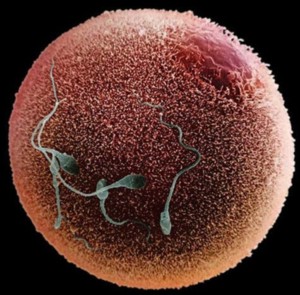What everyone should know
Most of us already know that an atom is the smallest division of matter that can take part in a chemical reaction; that a molecule is a structure of two or more atoms; and that life on Earth is based on organic molecules: defined as those molecules that contain carbon, often in combination with hydrogen, oxygen and nitrogen as well as other elements like sodium, calcium, phosphorous and iron.
Organic molecules can be very large indeed and come in all shapes and sizes. Like pieces in a jigsaw puzzle molecular shape is often important to an organic molecule's ability to bond to another to form elaborate and sometimes unique molecular structures.
All living things on Earth are comprised of cells and all cells are comprised of numerous molecular structures.
Unlike the 'ancients', most 'moderns' also know that each of us, like almost all animals and all mamals, originated from a single unique cell, an ova, that was contributed by our mother. This was fertilised by a single unique sperm from our father.
This 'fertilisation' triggered the first cell division. These two cells divided; and divided again and again; through gestation and on to birth childhood. So that by the time we are adults we've become a huge colony of approximately thirty seven thousand billion, variously specialised, cells of which between sixty and a hundred billion die and are replaced every day. Thus the principal function of a cell, over and above its other specialised purposes, is replication.
As a result, the mass of cells we lose each year, through normal cell division and death, is close to our entire body weight. Some cells last much longer than a year but few last longer than twenty years. So each of us is like a corporation in which every employee and even the general manager has changed, yet the institution goes on largely as before, thanks to a comprehensive list of job descriptions carried by every cell - our genome.
Cell replication is what we call 'life'. The replicating DNA molecule can therefore be regarded as the 'engine of life' or the 'life force' on Earth. So it is quite a good thing to understand.

